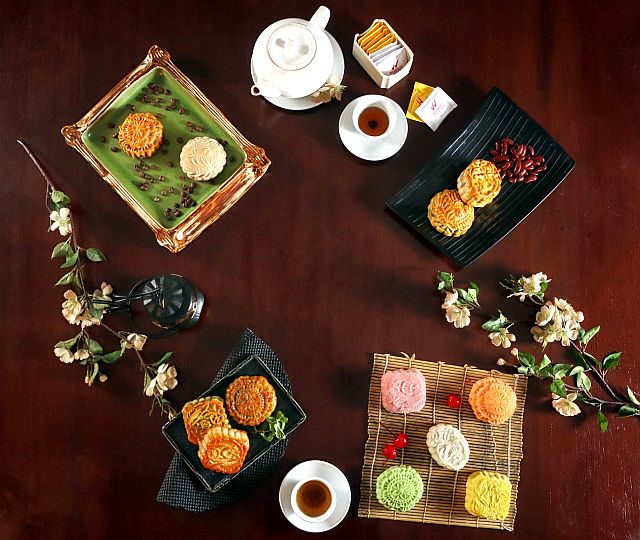
Assorted Mooncakes
THE CHINESE Mid-Autumn Festival is the second grandest in China after the Spring or New Year Festival, which is celebrated on the 15th day of the eighth month of the Chinese lunar calendar and falls on September 15 for 2016. It is also called Moon Festival since the moon is roundest and brightest at this time of the year. The movement of the moon has a close relationship with the change of seasons and agricultural production. So moon worship is part of the Chinese ritual during the festival.
It is also a time for family reunions and thanksgiving for the bountiful harvest. Thus, the making and sharing of moon cakes are hallmark traditions of this festival. In Chinese culture, a round shape symbolizes completeness and reunion.
Interestingly, I grew up in Manila close to Chinatown where “Hopia,” a popular moon cake-like Filipino-Chinese bean-filled pastry was sold freshly baked and hot in the streets. Introduced by Fujianese immigrants at the turn of the century, these are inexpensive treats and favored gifts to family and friends. I always wondered if “hopia” is a simplified kind of moon cake.
At the Waterfront Cebu City Hotel & Casino (WCCHC) General Manager Anders Hallden led his team in presenting the Moon Cakes at the hotel’s premier Chinese restaurant Tin Gow in celebration of this auspicious feast. It was also a symbolic gesture of reaching out and strengthening ties with friends. A Swedish national who assumed his post only last March, Mr. Hallden is no stranger to the convention hotel. He was, in fact, its Executive Chef a few years back and we discovered we worked closely with then WCCHC General Manager Marco Protacio. His hotel career has brought him to Europe, China and Southeast Asian countries. His Asian ties may even be stronger since he is married to a Filipina with whom he has two children.
His family, he adds, is settled in Cebu.
Moon Cakes are traditional round Chinese pastries measuring about 10 centimeters in diameter and 3 to 4 centimeters thick with a filling usually made from red bean or lotus seed paste wrapped with a thin pastry skin with an imprint of Chinese characters for longevity or harmony. I love the salted egg yolks at the center. To make the moon cake interesting, Mr. Hallden and French Pastry Chef, Benoit Laboureux came up with moon cakes with a French twist, in addition to the traditional moon cakes that Chinese Master Chef Low has been creating for Tin Gow.
Some flavors of his traditional moon cakes include pandan, green tea, lotus, coffee and dragon fruit. Chef Benoit had both sweet and savory creations: puto cheese, black forest, coconut and ube, bacon béchamel, beef Wellington and even lechon with sticky rice. These symbolic Moon Cakes are available from Aug. 15 to Sept. 17 to celebrate the Mid-Autumn Festival.
The Moon Cake afternoon Preview held in Tin Gow featured its famous Dim Sum dishes. We also had fun playing dice games and winning prizes.